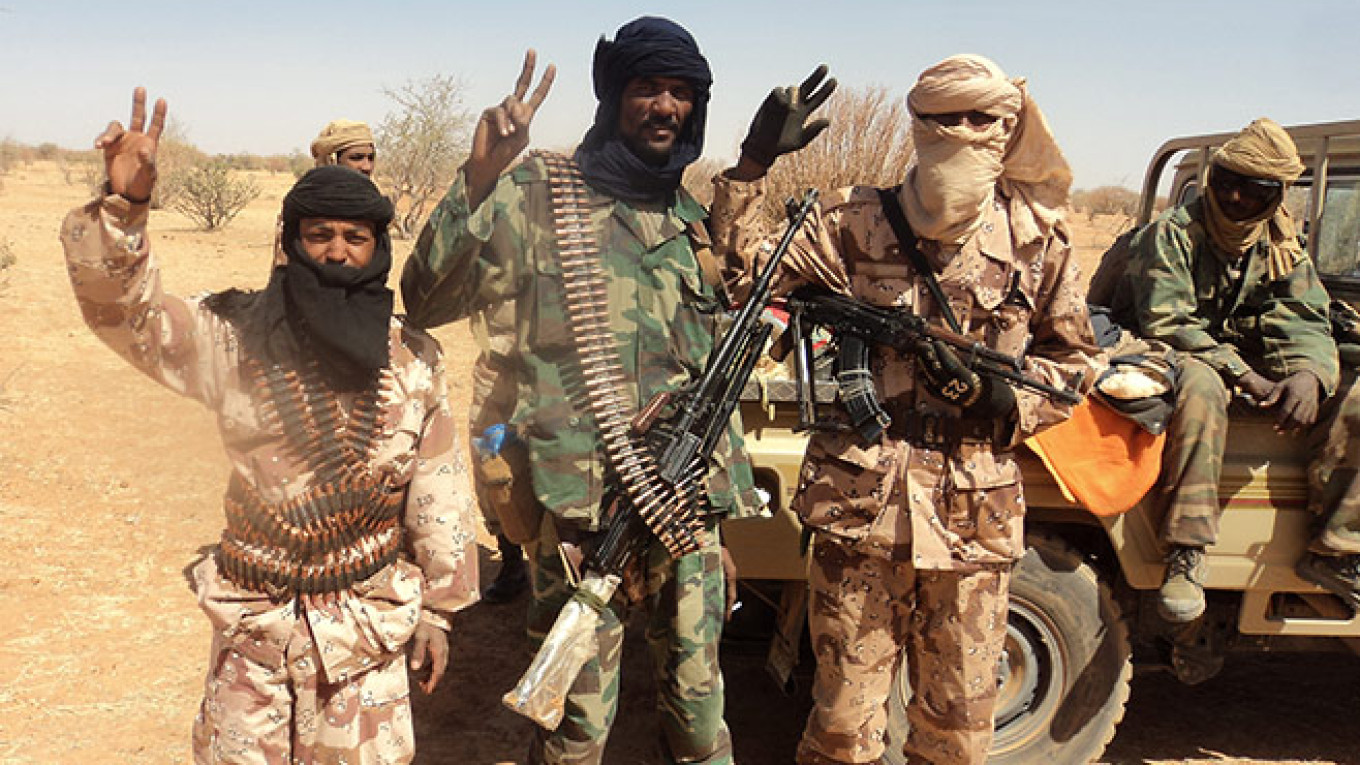Russian citizens are wiring substantial sums of money to terrorist groups that seek donations online to fight "infidels," the head of Russia's state financial watchdog told President Vladimir Putin during a meeting Wednesday.
The electronic transfers reach tens of millions of rubles (hundreds of thousands of dollars) each year, the chief of the Rosfinmonitoring watchdog, Yury Chikhanchin specified after the meeting, the Interfax news agency reported. For comparison, a series of terror attacks in Paris last November that killed 130 people cost organizers about 2,000 euros to 3,000 euros, Chikhanchin was quoted as saying, without specifying the source of the estimate.
"It certainly causes a very great concern ?€¦ that even posts on social networks saying the money is needed for wars against 'infidels' prompt people who live in Russia to respond and send [money]," Chikhanchin told Putin, according to a transcript released by the Kremlin.
The number of financial sponsors in Russia is estimated at a few dozen people, according to Chikhanchin.
"What drives those people? Each one of them probably has their own reason; we need to sort this out," he said.
Chikhanchin's financial watchdog and the Federal Security Service (FSB) are trying to identify terror cells in Russia, as well as terrorists who came to Syria to fight alongside with the Islamic State terrorist group, and the businesses that "abet and make money from terrorism," he told Putin.
Government agents have identified 42 terror cells in Russia so far this year, along with 30 more found in other countries in cooperation with foreign security services, Chikhanchin said.
About 1,500 people were added to terrorist lists last year, and 3,500 bank accounts have been frozen, he told Putin.
The Islamic State is a terrorist organization banned in Russia.
A Message from The Moscow Times:
Dear readers,
We are facing unprecedented challenges. Russia's Prosecutor General's Office has designated The Moscow Times as an "undesirable" organization, criminalizing our work and putting our staff at risk of prosecution. This follows our earlier unjust labeling as a "foreign agent."
These actions are direct attempts to silence independent journalism in Russia. The authorities claim our work "discredits the decisions of the Russian leadership." We see things differently: we strive to provide accurate, unbiased reporting on Russia.
We, the journalists of The Moscow Times, refuse to be silenced. But to continue our work, we need your help.
Your support, no matter how small, makes a world of difference. If you can, please support us monthly starting from just $2. It's quick to set up, and every contribution makes a significant impact.
By supporting The Moscow Times, you're defending open, independent journalism in the face of repression. Thank you for standing with us.
Remind me later.


